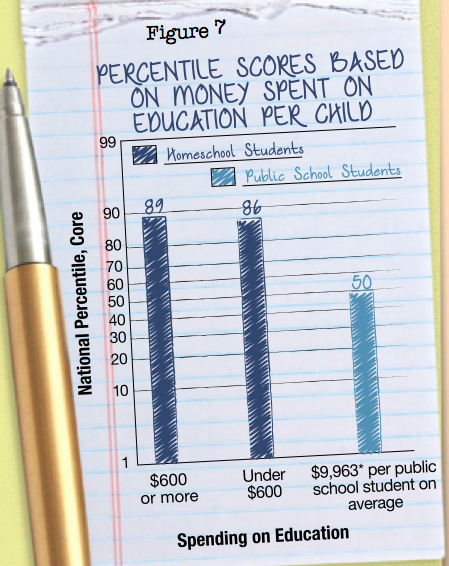Homeschooling is gaining popularity, in the United States, as an alternative to traditional institutional schooling. In a new study just released by Dr. Brian Ray of National Home Education Research Institute (NHERI), he estimates that the number of school age children (ages 5 to 17) who are educated at home, in the U.S., has jumped from approximately from 2.9% in 2007 to 3.8% in the spring of 2010. Based on population data from the 2010 Census and the U.S. Department of Education, the overall population of school age children grew about 2.11% from 2007 to 2010, but numbers enrolled in schools only grew by 0.59% from spring 2007 to spring 2010. He also states that there is other reliable data gathered from state departments of education and private homeschool organizations that support evidence that there has been a 7% increase in the homeschool population from the same time period. Ray offers an official number for the study at 2,040,000 K-12 homeschooled students in the U.S. and “confidently” offers an estimated range between 1,734,000 and 2,346,0000.
Data collected for this study, previous research findings, and the experience of the researcher show that there were an estimated 2.040 million (2,040,000) K to 12 homeschool students in the United States in the spring of 2010. The author is highly confident that the true number lies between 1,734,000 and 2,346,000 homeschool students in grades K to 12 in the United States during the spring of 2010.
Either way, the claim that homeschooling is now a passing fad has no support.
Dr. Ray states several variables in his study, one of which being the number of “underground” home educators who are living in states attempting to control home education via some form of registration. He finds that nearly 10% of families living in such states are flying under the radar, and he feels this is a conservative estimate. He also adds:
Basically, the study tells us that the number of home-educated children and youth in America has continued to grow over the past three or so years. It appears to have grown in both absolute numbers and in terms of the percentage of the total school-age population nationwide.
According to Ray, it is uncertain just what drives parents to home educate and notes that economy may or may not influence the decisions for various reasons.
In another vein, it is uncertain what effect nationwide economic hard times are having on the percentage of families that might choose home-based education. Difficult economic times might cause more parents to decide they need two incomes. If so, more families would find it difficult to have one parent available to homeschool the children. On the other hand, if fewer jobs are available nationwide then it might be more likely that one parent could be at home to conduct home-based education. Further, if the economy is down in general, families have less monetary resources available, after taxes, including those that pay for state (public) schools, and therefore less to put toward tuition in private schools. Thus, homeschooling might increase as a percentage of private-education choice. Further research might address this intriguing issue.
HSLDA had this to say on the new study:
“‘The growth of the modern homeschool movement has been remarkable,’ said Michael Smith, president of HSLDA. ‘Just 30 years ago there were only an estimated 20,000 homeschooled children,’ he added.”
The authors of the study speculate that numbers will continue to grow in the next 5 to 10 years due to the idea that the numbers of previously homeschooled students of the 1990s may begin homeschooling their own school age children.
 As I was filtering through my Facebook feed, I noticed a posting from my good friend, Dr. Brian Ray, of the National Home Education Research Institute (NEHRI). I often share his posts because they always reflect the reality of homeschooling, good and not so good. I have always known Dr. Ray to present homeschooling in a truthful and unbiased light, even though he has home schooled his own children and believes in parent led education as a viable form of schooling. I find it amazing that our society can be so brainwashed into such narrow thought.
As I was filtering through my Facebook feed, I noticed a posting from my good friend, Dr. Brian Ray, of the National Home Education Research Institute (NEHRI). I often share his posts because they always reflect the reality of homeschooling, good and not so good. I have always known Dr. Ray to present homeschooling in a truthful and unbiased light, even though he has home schooled his own children and believes in parent led education as a viable form of schooling. I find it amazing that our society can be so brainwashed into such narrow thought.The article, in SFGate, features a formerly homeschooled student from Kansas who is now attending Penn State. It was titled, Homeschooling Presents Opportunities, Challenges.
